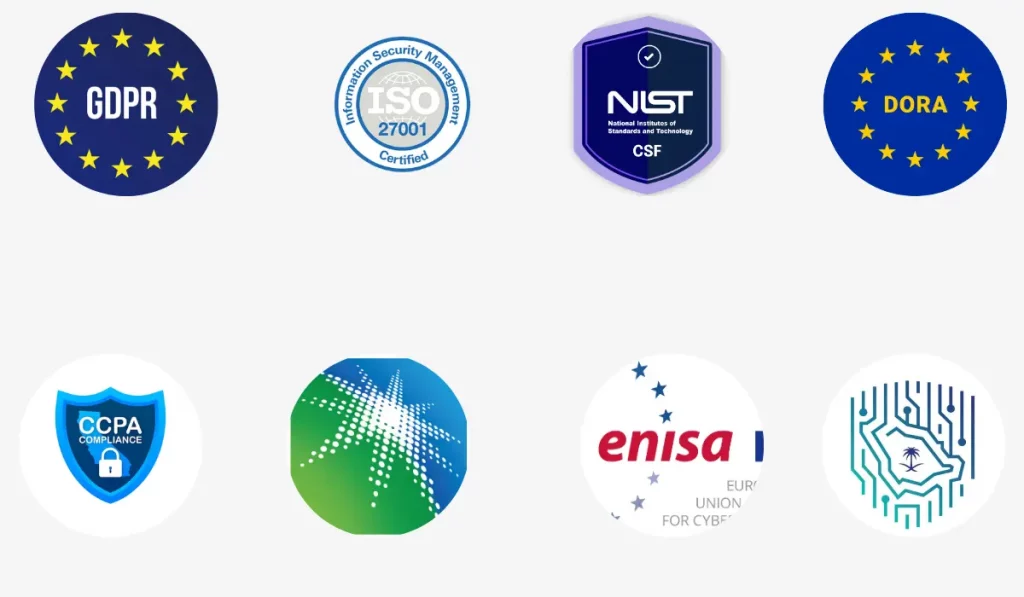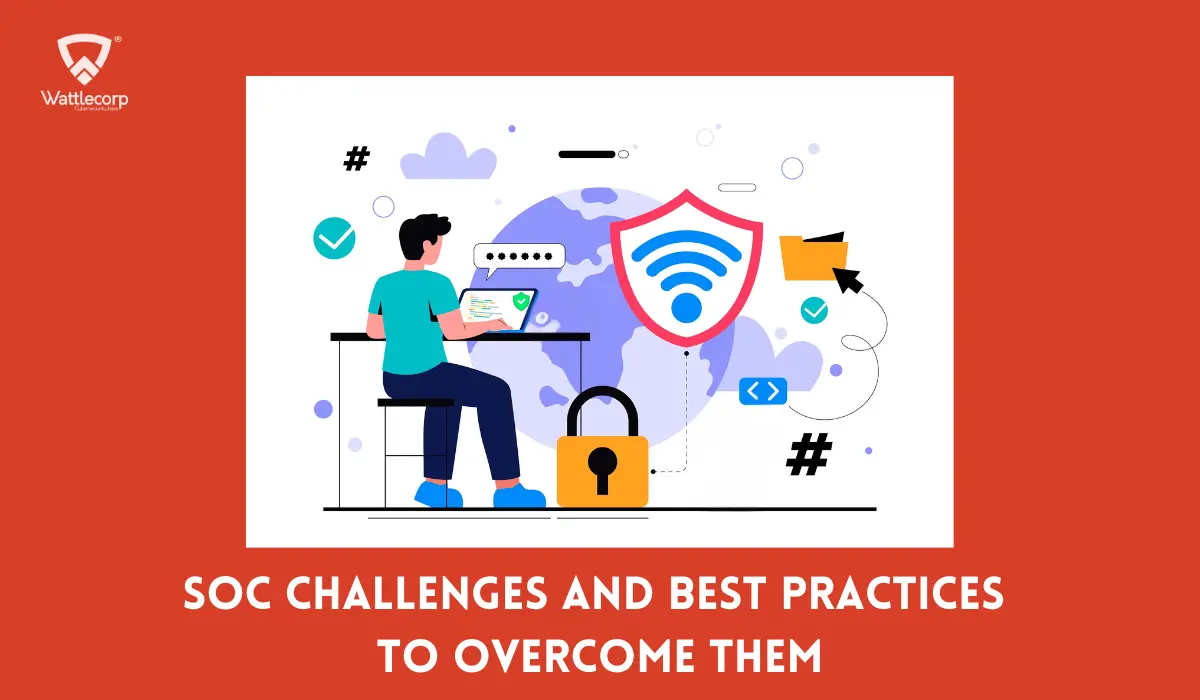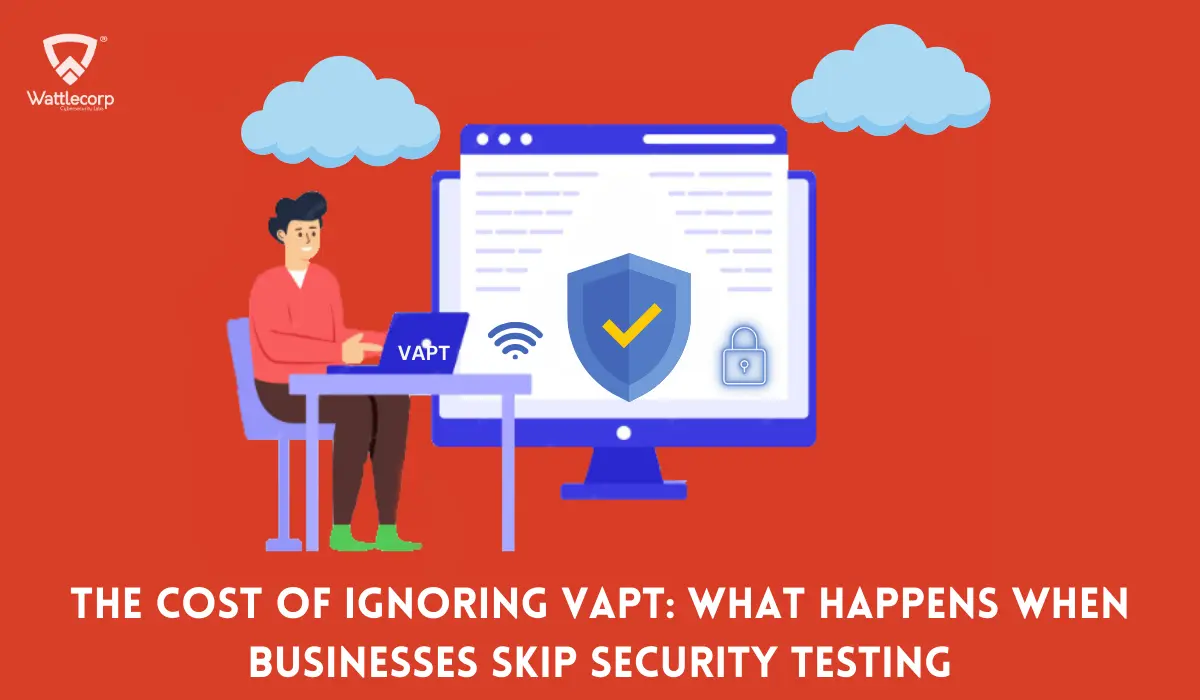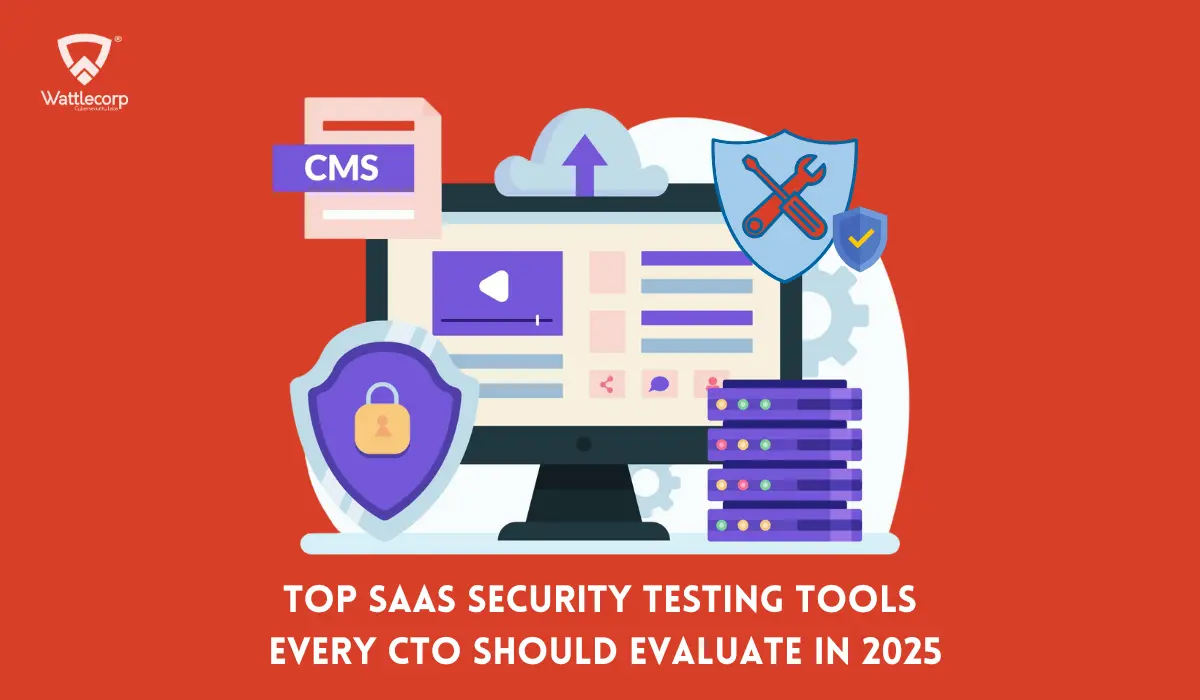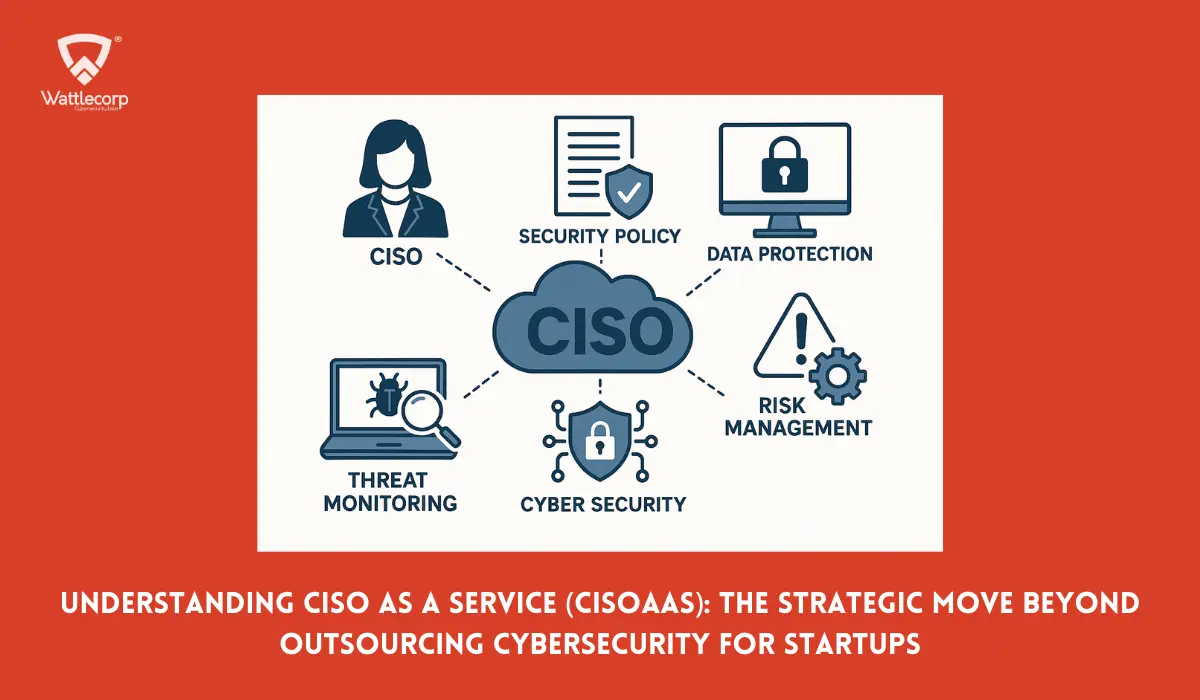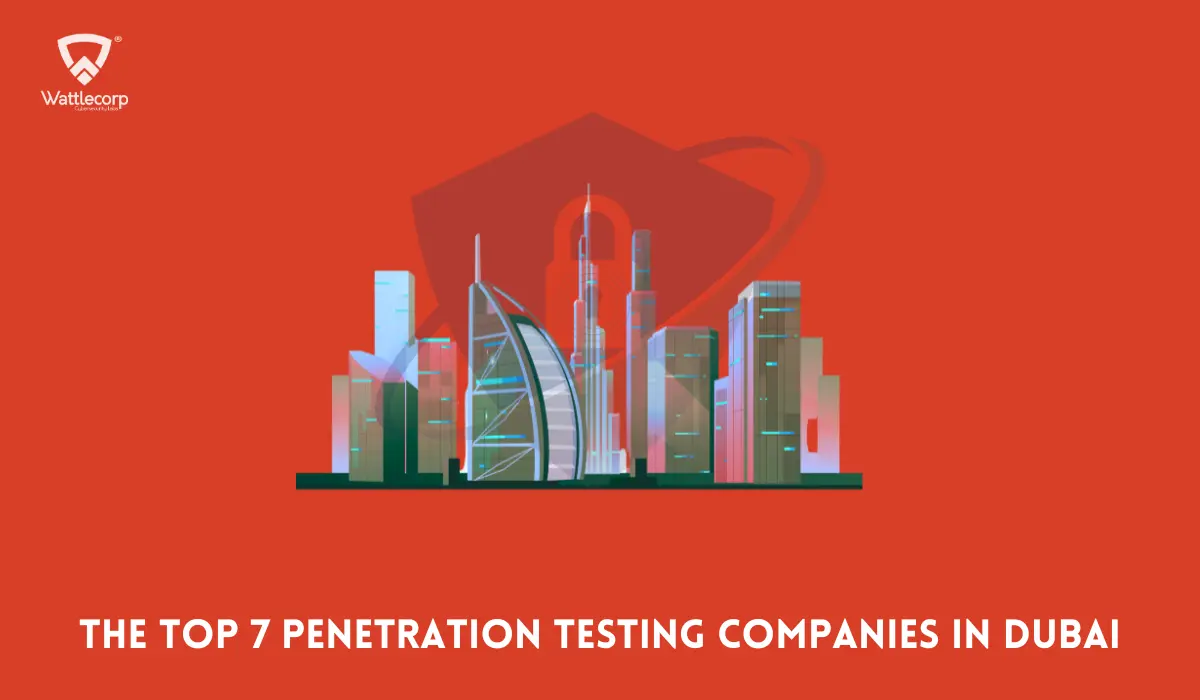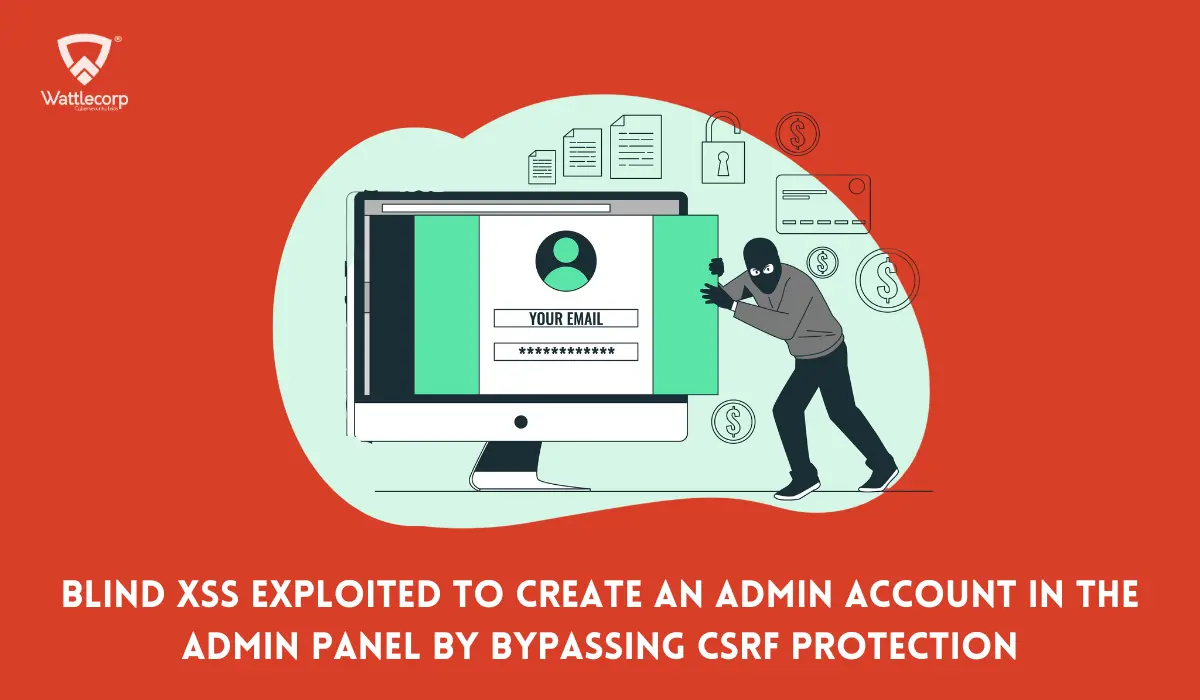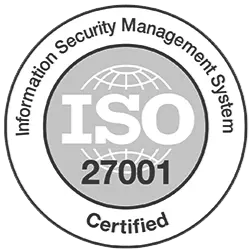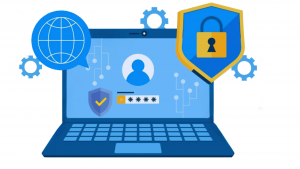SECURE YOUR BUSINESS WITH EXPERT VAPT STRATEGIES
How Secure Is Your Infrastructure? Book a Free Consultation with Wattlecorp’s Experts to identify vulnerabilities, develop a robust VAPT strategy, and safeguard your business with tailored protection solutions.

Penetration testing compliance is simply nothing but finding vulnerabilities in your application or the organization itself, aligned to certain standardized formats, or an industry-specific security standard.
Dealing with data with precise confidentiality is critical for your business. Cyber threats come in various forms and ensuring resilience is the hardest part for your organization and greatly mandatory. The legal and regulatory bodies along with the cybersecurity experts have been playing a greater role in helping you be assured that you are ahead of the threat landscape.
Notably, each industry has individual compliance, which also comes with hefty fines for promoting zero compromises to vulnerable businesses and applications.
Table of Contents
Toggle- What is penetration testing compliance?
- 1. HIPAA
- 2. PCI DSS
- 3. GDPR
- 4. ISO 27001
- 5. ADHICS Compliance
- 6. SIA (NESA)
- 7. Aramco CCC
- 8. SAMA Compliance
- 9. ADSIC Compliance
- 10. CCPA
- 11. DORA COMPLIANCE
- 12. ISR
- 13. Saudi NCA Compliance
- 14. Qatar Cybersecurity Framework
- 15. NIST CF
- 16. ECSF- ENISA
- Why do you need penetration testing compliance?
What is penetration testing compliance?
Identifying and mitigating cyber risks towards strengthening your organization is both easier and mandatory with the presence of data protection regulations. Penetration testing compliance is simply testing your applications against vulnerabilities based on predefined criteria set by certain legal entities.
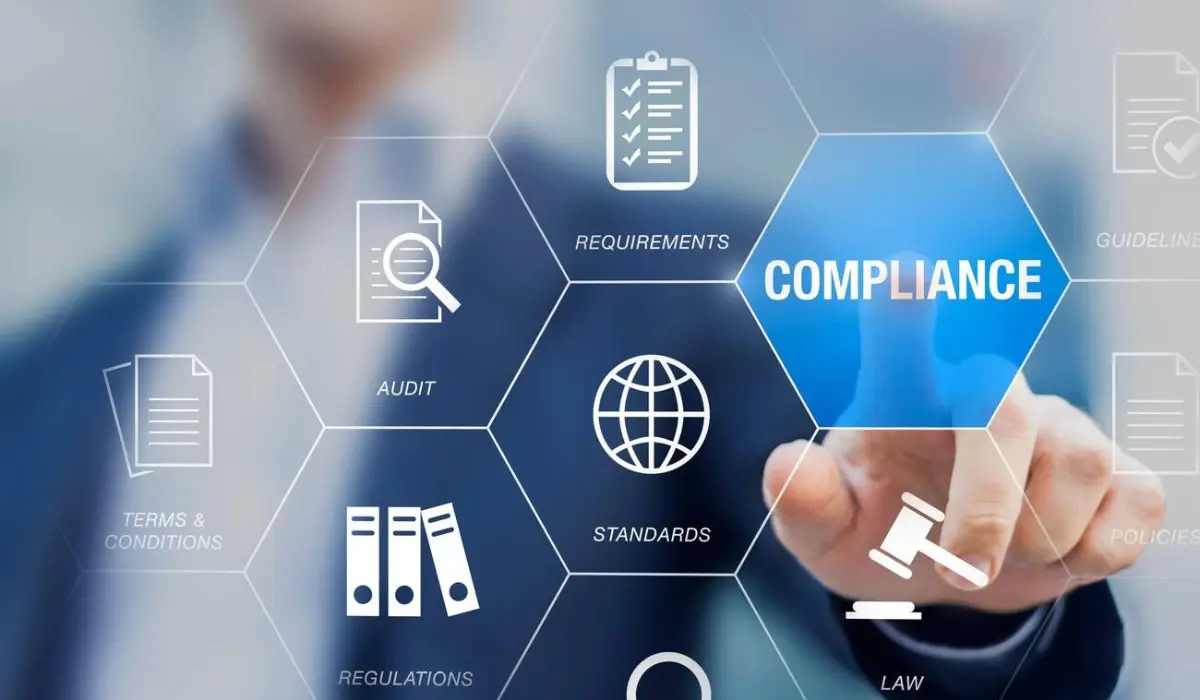
Cyber risks are evolving with time and tide. And keeping up with them is crucial for business. Penetration testing compliance helps organizations to be on trend with the latest technological landscape and provide more safe and secure services to clients.
Probably you might be wondering what makes the difference between normal pen testing and one with compliance with it. Penetration testing is testing helps to find how deeply the assessed vulnerabilities are able to cause damage to the application, asset, system, or the organization itself.
Compliance pen-testing requirements are usually penetration testing itself. But conducted aligning to certain data security standards governed by a variety of agencies either government or private.
In terms of alignment with the industry, certain sectors, particularly those dealing with sensitive client data, require Vulnerability Assessment and Penetration Testing as a standard. HIPAA for healthcare, PCI DSS for the payment card industry, SOC 2 for service organizations, etc. are a few of the examples of compliance that organizations must abide by if planning to conduct business in a particular area.
Here we have listed some of the important penetration compliances you should know in 2024
- PCI DSS Compliance
- GDPR Compliance
- ISO 27001
- ADHICS Compliance
- SIA NESA Compliance
- ARAMCO CCC
- SAMA Compliance
- ADSIC Compliance
- CCPA
- DORA Compliance
- ISR V2
- Saudi NCA Compliance
- Qatar Cybersecurity Framework
- NIST CF
- ECSF- ENISA
Following are the details regarding the certifications and their related industry:
1. HIPAA
Health Insurance Portability and Accountability Act of 1996 is a federal law focused on ensuring data safety of sensitive patient-related health data from others’ hands without the consent or knowledge of the protection. HIPAA privacy rules were issued by the US Department of Health and Human Services (HHS) which was the base for the HIPAA requirements.
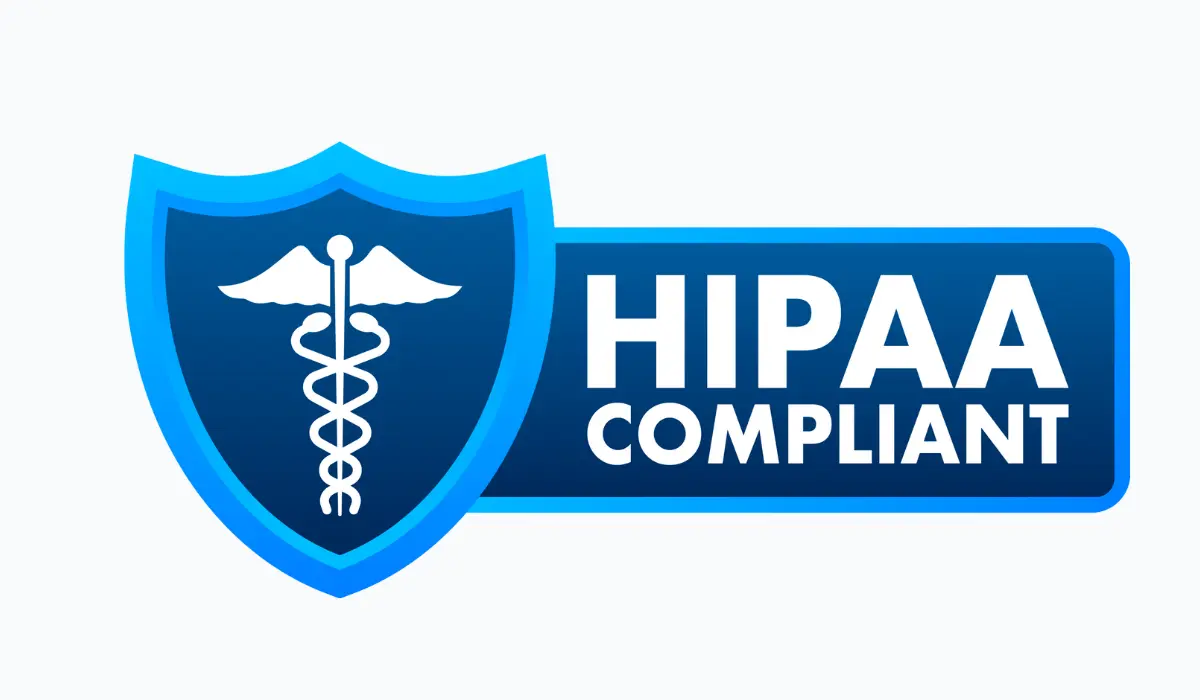
Healthcare providers consist of claims, eligibility inquiries, referrals, etc., and health plans comprising health maintenance organizations, dental, vision, medicare and its related entities, multi-employer health plans, employer-sponsored health plans, etc. come under it.
This regulation is applicable to all firms worldwide that acquire and utilize healthcare data of US people.
2. PCI DSS
The Payment Card Industry Data Security Standard (PCI DSS) is a collection of security guidelines intended to guarantee that every business that accepts, handles, stores, or transport credit card information operates in an adequately protected environment.
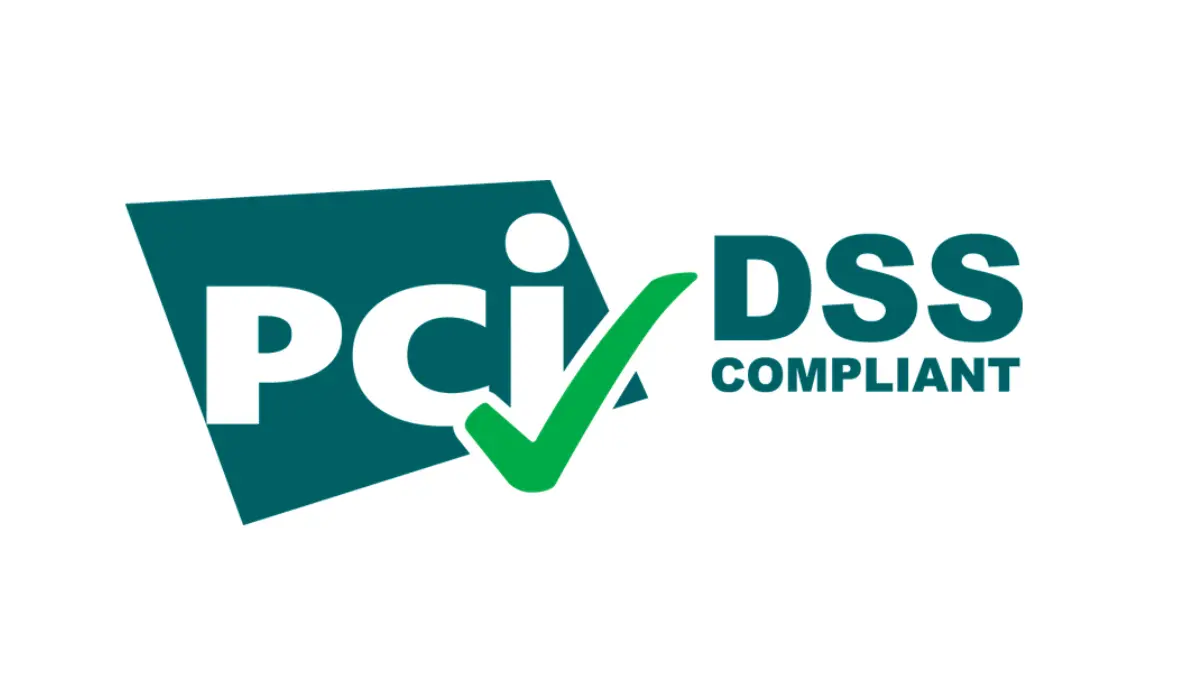
It came into existence in 2004 and is supervised by the Payment Card Industry – Security Standard Council (PCI SSC). The PCI DSS compliance method is divided into four tiers based on the total number of actual transactions involving credit and debit cards processed by a certain firm.
Level 1 is for firms that process over six million transactions, while level 4 is for those who manage less than 20,000 transactions. It is necessary at all levels, but level 1 organizations must complete internal audits and undergo scanning conducted by an Approved Scanning Vendor.
Now, the PCI certification demands you to utilize a firewall, encrypt transcripts, and install antivirus software. However, you must qualify for the audits and scans. Although the Rule One document does not explicitly require it, you must use penetration testing service in India to guarantee that there are no security flaws.
3. GDPR
The General Data Protection Regulation (GDPR) is a legislative framework that sets standards for gathering and handling personal information from individuals within and outside the European Union (EU).
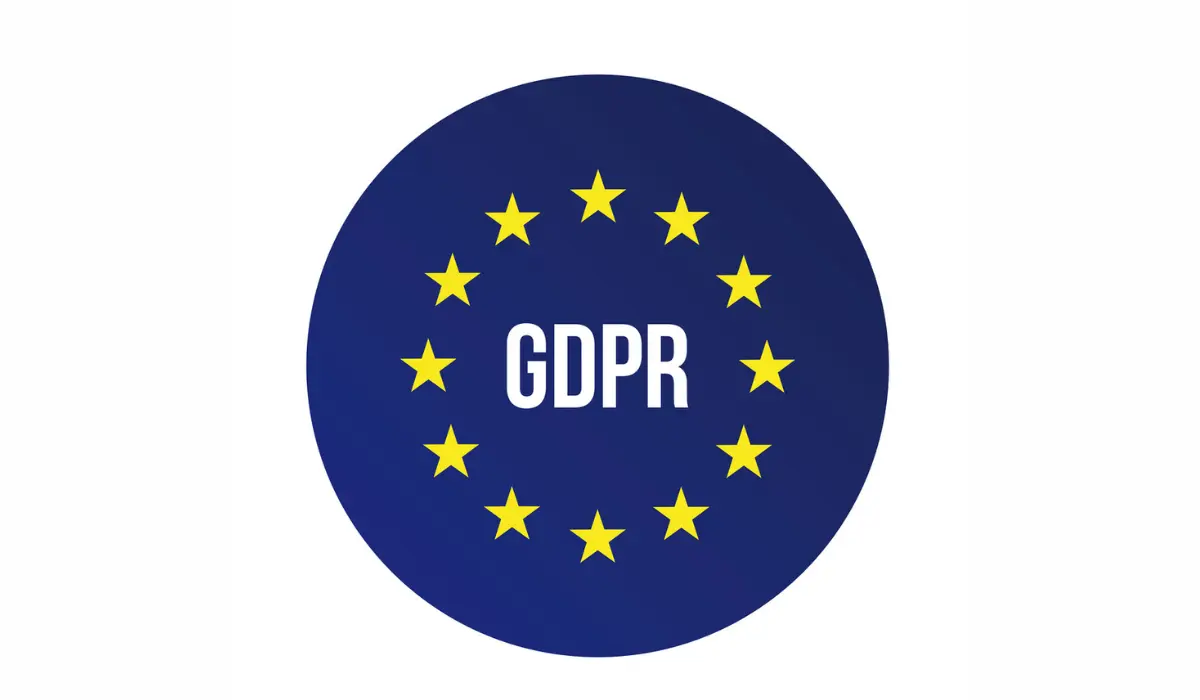
It gives users control over their private data by holding businesses responsible for how they maintain and handle it. The rule exists independent of where websites are based, thus any sites that attract European viewers must comply, even if they do not explicitly offer items or services directed at EU nationals.
It requires the website to warn visitors that their data is being gathered, ask consent to collect data through actions such as clicks on the button, and notify the users quickly upon any breach incidents. Also, it ensures the services and applications are secure through regular penetration tests and asks the firm to assign or hire a data protection officer (DPO) as required.
4. ISO 27001
ISO 27001 is an internationally accepted best practice framework for information security management systems (ISMS) and one of the most widely used information security management standards in the world. Failure to implement the same could result in serious financial and reputational consequences.
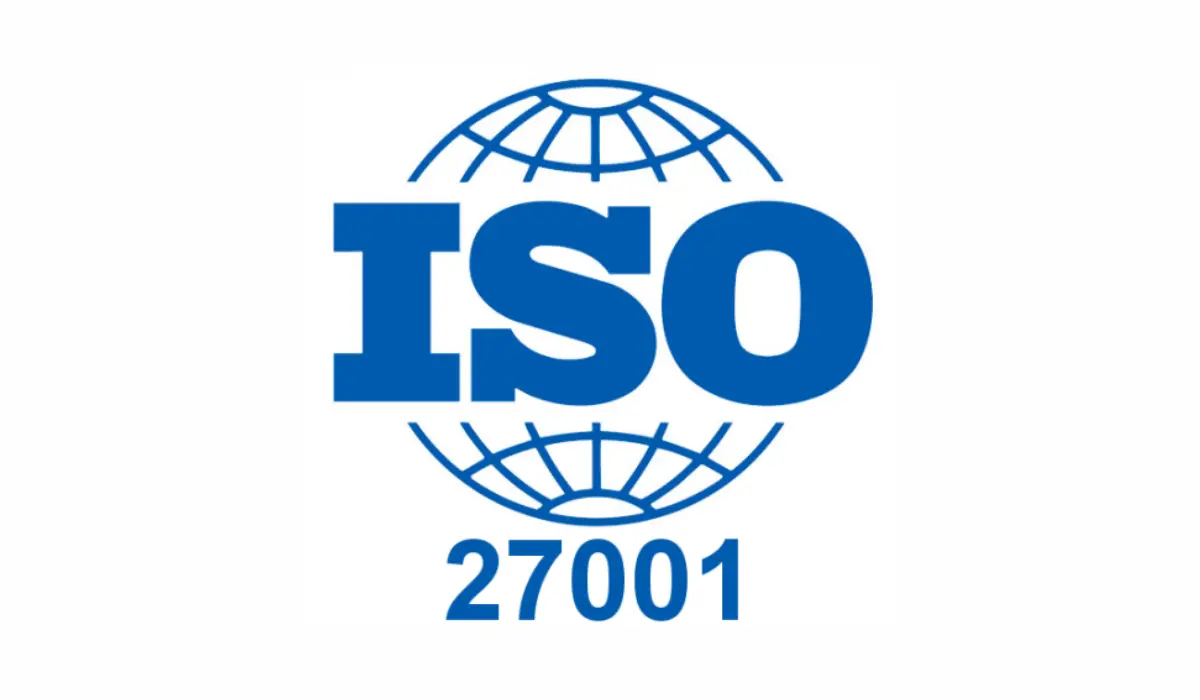
It is considered a most essential component of any organization’s information security risk management process, and it has become an integral feature of many IT governance, risk, and compliance (GRC) programs.
ISO 27001 certification allows you to demonstrate strong security procedures, which strengthens customer relationships and provides businesses with a competitive edge. As an ISO 27001-certified organization, you are able to pursue new customers confident that your organization and the service are secure from threats.
5. ADHICS Compliance
The Abu Dhabi Healthcare Information and Cybersecurity Standard (ADHICS) was created by the Department of Health. It is an effort that supports the DOH’s vision and federal objectives and has been approved by the Executive Committee in sync with business and international requirements on information security.
It reinforces the government’s Health Information Exchange (HIE) programs, with the objective to boost security and public confidence. Healthcare institutions can improve data privacy and security in Abu Dhabi’s health sector.
6. SIA (NESA)
The UAE Signals Intelligence Agency (SIA) Compliance , previously known as the National Electronic Security Authority (NESA), is a government agency tasked with improving cybersecurity rules and procedures in the United Arab Emirates.
It is a set of administrative and technical controls that develop, execute, maintain, and improve the nation’s information security measures. The UAE IA Regulation was created by the Telecommunications and Digital Government Regulatory Authority (TRA) and is a key component of the National Cyber Security Strategy.
7. Aramco CCC
Each entity interested in doing business with Saudi Aramco must fulfill these requirements. They created cybersecurity compliance certifications (CCC and CCC+) to ensure that firms who worked with them adhered to their strict security and quality criteria.

The SACS-002, or Saudi Aramco Third-Party Cybersecurity Standard, was designed to guarantee that all third-party or supply chain partners adhere to specified cybersecurity criteria in order to secure critical information and assets from cyber-attacks. The cybersecurity criteria are known as the Third-Party Cybersecurity Standard (SACS-002).
8. SAMA Compliance
In 2017, the Central Bank of Saudi Arabia, and the Saudi Arabian Monetary Authority (SAMA) released their Cyber Security Framework to help regional firms secure information assets and online services.
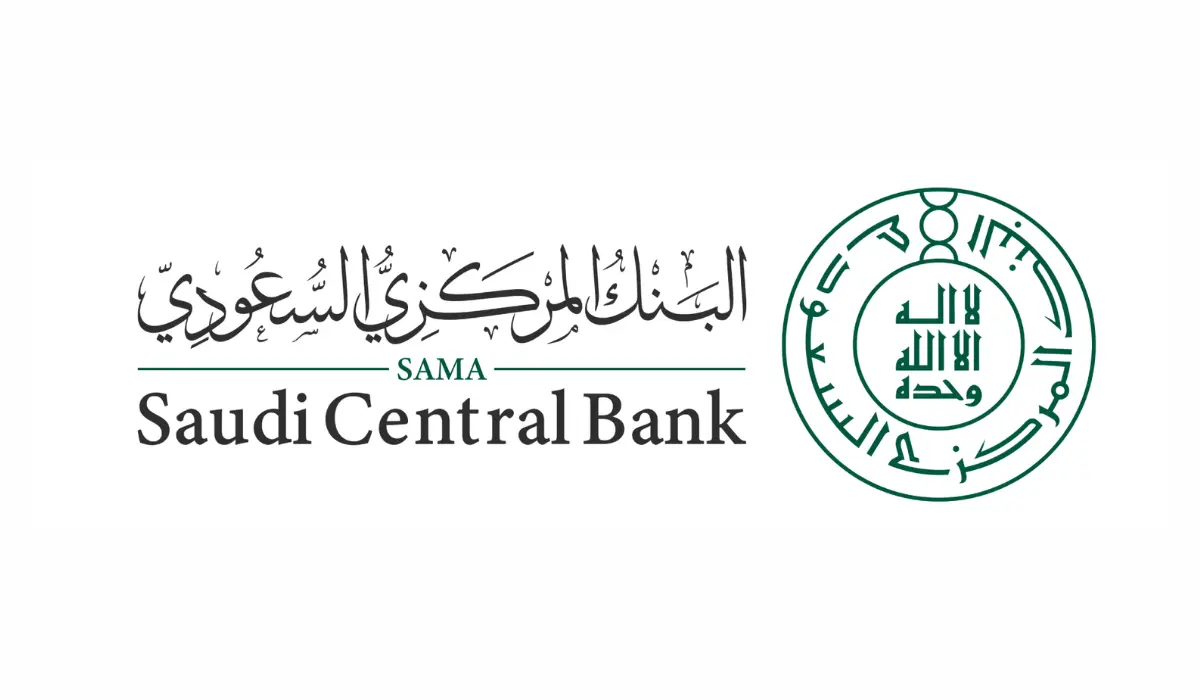
All financial organizations regulated by SAMA Compliance , including banks, insurance companies, and finance businesses operating in Saudi Arabia, are required to comply with the same.
It is a comprehensive framework that incorporates the best practices from several government frameworks and industry standards, including NIST, PCI DSS, ISO 27001/27002, and Basel II.
9. ADSIC Compliance
The Abu Dhabi Systems & Information Centre (ADSIC) defines a comprehensive strategy to ensure optimum information security for the Abu Dhabi government. The major goal of this initiative is to ensure that sensitive government information is protected throughout its life cycle, not just within government systems but also in automated systems wherever it is handled.
Also Read : Penetration Testing Guide for Businesses: How to Ensure End-to-End Security
10. CCPA
The California Consumer Privacy Act (CCPA) is a state-wide data security law that regulates how organizations handle California residents’ personal information (PI).
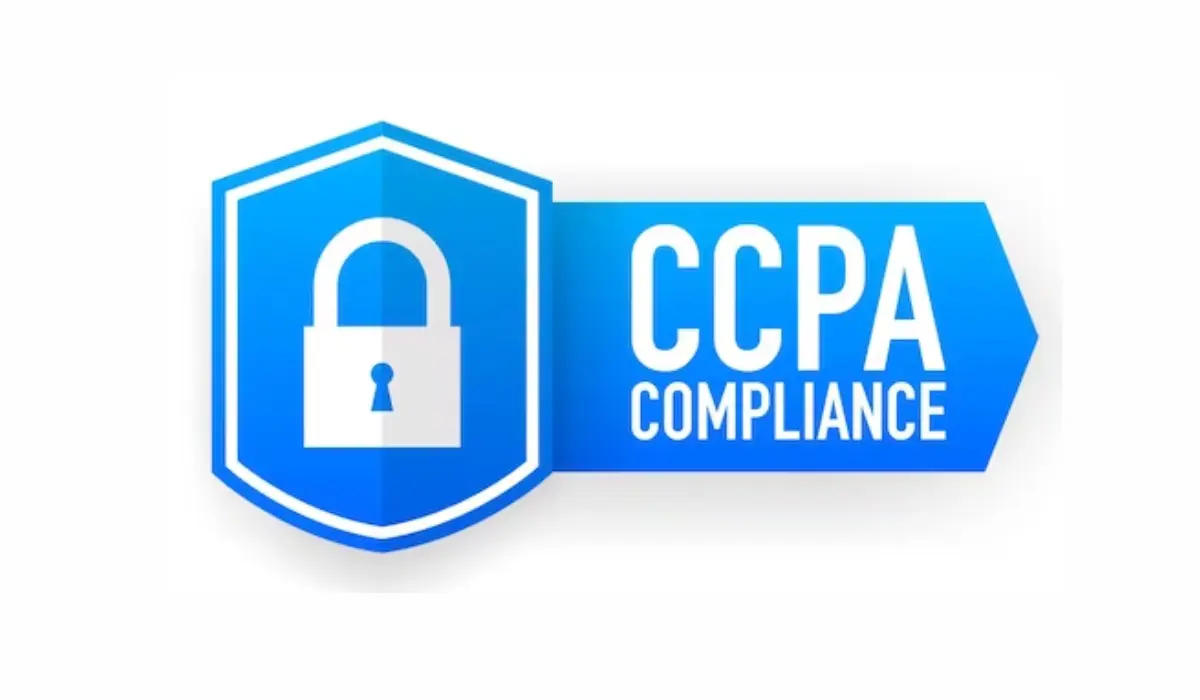
It is applicable for business that processes 50,000 plus personal information and gain half of their annual revenue through the trade of California residents, or generate $25 million plus revenue.
11. DORA COMPLIANCE
The Digital Operational Resilience Act, or DORA, is a European Union (EU) policy that establishes a legally enforceable, extensive information and communication technology (ICT) security framework for the EU financial industry.
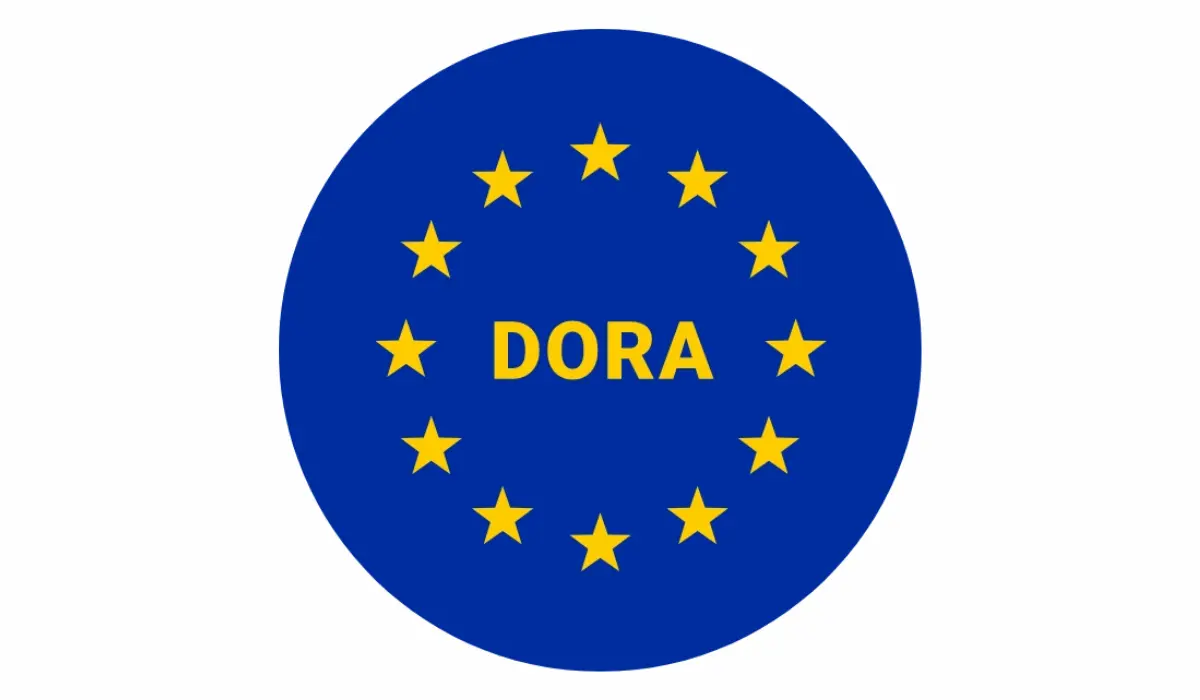
DORA Compliance provides technological requirements for financial institutions and important external technology service providers for implementation within their ICT systems before 17th January 2025.
Its goals are to entirely deal with ICT risk management in the finance industry and to bring together existing ICT risk management rules in different EU member states.
12. ISR
The Dubai government established the information security regulations (ISR), which require all government bodies to obey its rules and procedures in order to keep information accurate, accessible, and hidden. Its primary objective is to encourage employees to follow best practices for information security.
13. Saudi NCA Compliance
The National Cyber Security Authority (NCA) of Saudi Arabia released the Essential Cybersecurity Controls (ECC) in 2018. The primary objective was to ensure that the organizations uphold and support initiatives that help to improve the security of critical infrastructures, government services, and national security.
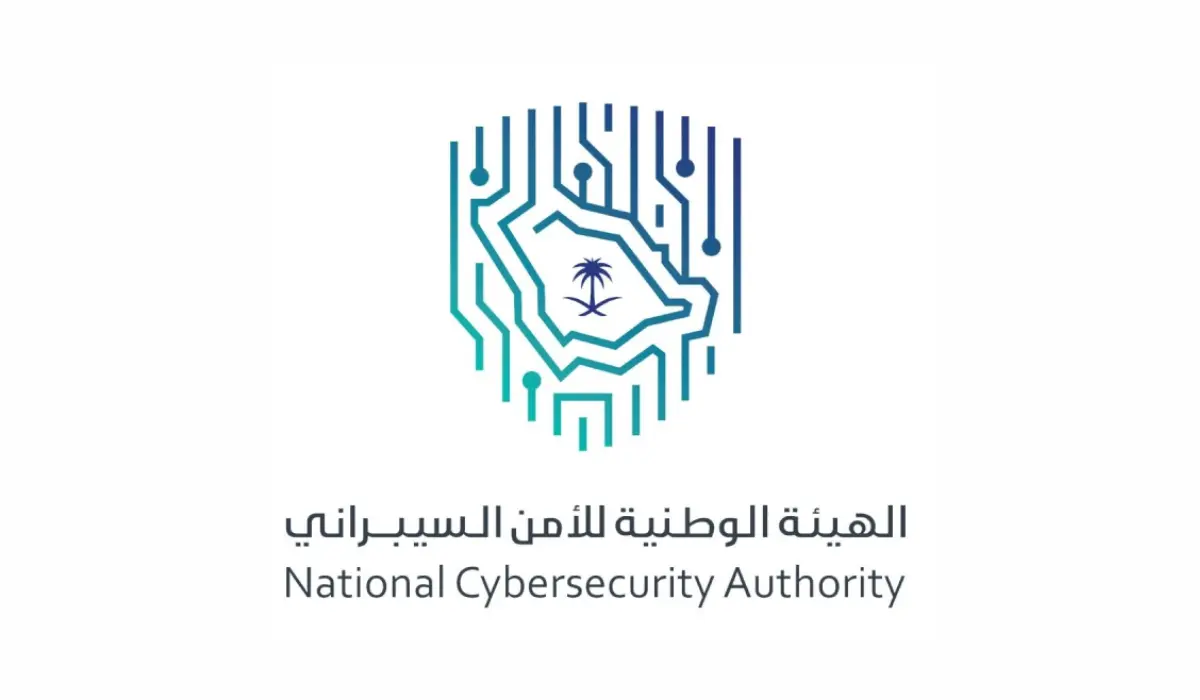
Also, it works closely with the public and private entities towards safeguarding the country’s cybersecurity posture by mandating every organization to follow the same.
14. Qatar Cybersecurity Framework
QCF aka Qatar Cybersecurity Framework developed by the Qatar National Cyber Security Committee (NCSC) is a set of guidelines that helps organizations maintain and abide by security standards and guidelines.
It is primarily comprised of strategy and administration, risk management, security, discovery and remedy, recovery, and cooperation and partnership.
15. NIST CF
The National Institute of Standards and Technology (NIST) is an entity that works towards setting and improving security standards. They have developed the Cybersecurity Framework, which consists of best practices and guidelines enabling businesses not only to assess and respond to cyber threats but also to prevent and recover from incidents. It is also considered the gold standard for building cybersecurity programs.
Also Read : Ensuring Data Privacy Compliance-Essential Steps for Your Business
16. ECSF- ENISA
The European Cybersecurity Skills Framework (ECSF) classifies cybersecurity-related positions into 12 identities, each of which is carefully evaluated on the basis of their different duties, abilities, collaborations, and interdependencies.
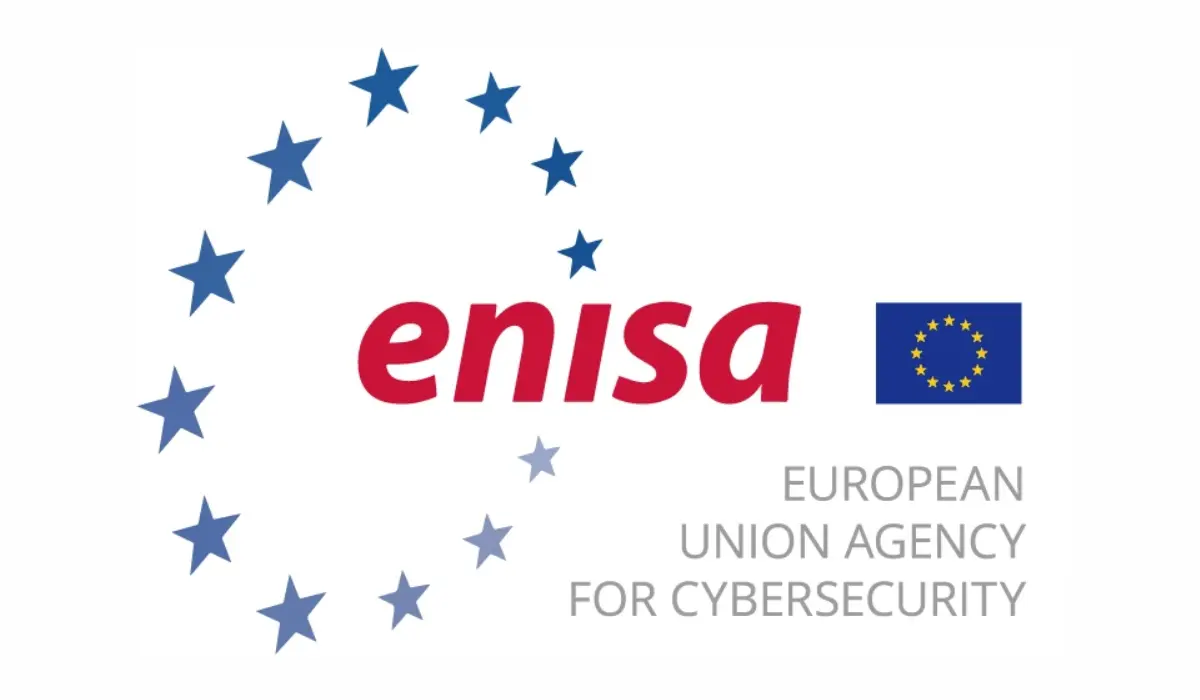
It promotes a shared understanding of the important responsibilities, competencies, abilities, and knowledge most commonly required in cybersecurity, enables the acknowledgment of cybersecurity skills, and aids in the development of cybersecurity-related training programs.
Simply put, it is a tool for identifying and articulating responsibilities, competencies, abilities, and knowledge related to the duties of European cybersecurity experts.
Why do you need penetration testing compliance?
Finding and fixing the vulnerabilities utilizing penetration testing compliance not only just builds a secure business but also greater trust among the customers. Services like Secure Web Application Penetration Testing can help ensure that compliance requirements are met while addressing critical vulnerabilities.
Identifying the latest security services and trends is imperative for sustainable business continuity, rather than sticking to primitive methods. Penetration testing is critical in cybersecurity because it identifies ways an intruder could exploit the systems of an organization to obtain access to sensitive information.
With variable attack techniques, frequent mandatory testing ensures that firms are able to identify and fix security flaws before bad actors exploit them. These tests are also useful for auditors since they check the existence and the safety of other crucial security measures.
